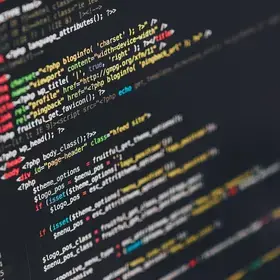By: Amin Mohseni-Cheraghlou, M.S. in Sustainability Management lecturer
This past October, while attending the 2023 Annual Meetings of the World Bank and IMF at Marrakech, I was invited to a private roundtable on Morocco’s renewable-energy industry. Prior to the event, I had a vague idea about the country’s energy landscape, but I was pleasantly surprised to learn how the Moroccan government approaches renewables.
Morocco is looking to increase the share of renewables in its power generation from around 20 percent today to 52 percent in 2030 and 80 percent by 2050. Four factors are the primary drivers for such ambitious plans.
Morocco Needs to Import Energy
Unlike many other countries in the MENA region, Morocco is not an oil- or gas-producing country. In fact, Morocco is a net energy importer. In 2022, 90 percent of the country’s energy needs were met through imported fossil fuels, including refined oil, gas, and coal. Volatile and increasing fossil fuel prices have put the government’s budget under pressure and undermine its ability to push forward with its ambitious development agenda. Therefore, renewable energy is the only way for Morocco to reduce its energy bill and gain control and sovereignty over its energy needs.
Water
Morocco has a severe lack of fresh water, ranking 27th globally on WRI’s Aqueduct Water Risk Atlas. Surface water and groundwater account for 97 percent of Morocco’s fresh water sources. The drought over the past few years has forced the government to redirect fresh water from agricultural production to household consumption, resulting in a negative impact on GDP. To alleviate the water shortage, the country is planning to build 12 large desalination plants over the next 10 years that will meet about 15 percent of the country’s fresh water needs. However, desalination is very energy-intensive. To make desalination sustainable, both environmentally and economically, Morocco has committed to running these plants on renewable energies.
Morocco Has Resources
Morocco is home to massive solar and wind resources, which has helped make this North African country an ideal location for investments in renewable energies, including green hydrogen. Morocco ranks second in the Normalized Renewable Energy Country Attractiveness Index, published annually by Ernst & Young.
EU Has Demand
The EU has an insatiable demand for Morocco’s green energy. In addition to their ambitious net-zero targets by 2050, many EU economies are eying green energy imports from North Africa to strengthen their energy security. Be on the lookout for Morocco’s renewable-energy journey, as there are many exciting developments on this front.
Views and opinions expressed here are those of the author, and do not necessarily reflect the official position of Columbia School of Professional Studies or Columbia University.
About the Program
The Master of Science in Sustainability Management program, offered by the School of Professional Studies in partnership with the Climate School, is designed for current and aspiring leaders who wish to pursue a career in management at the intersection of business and the environment.


